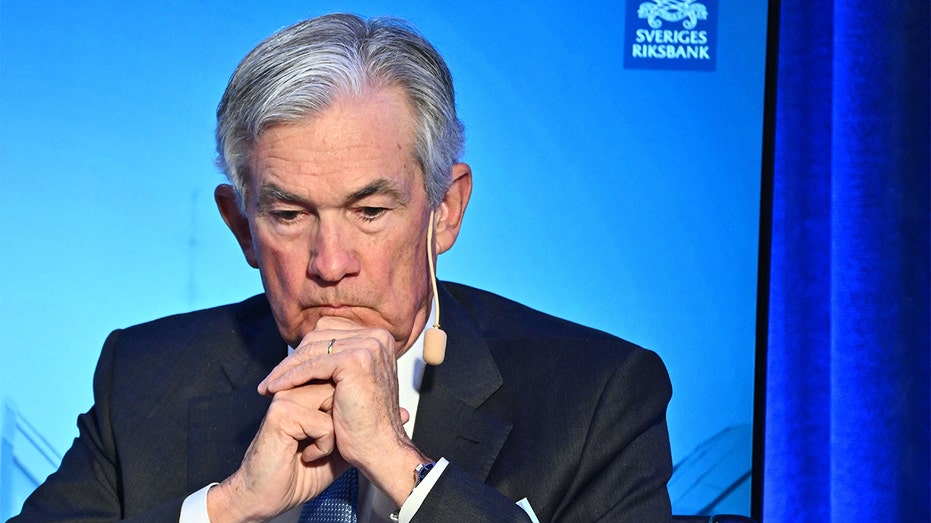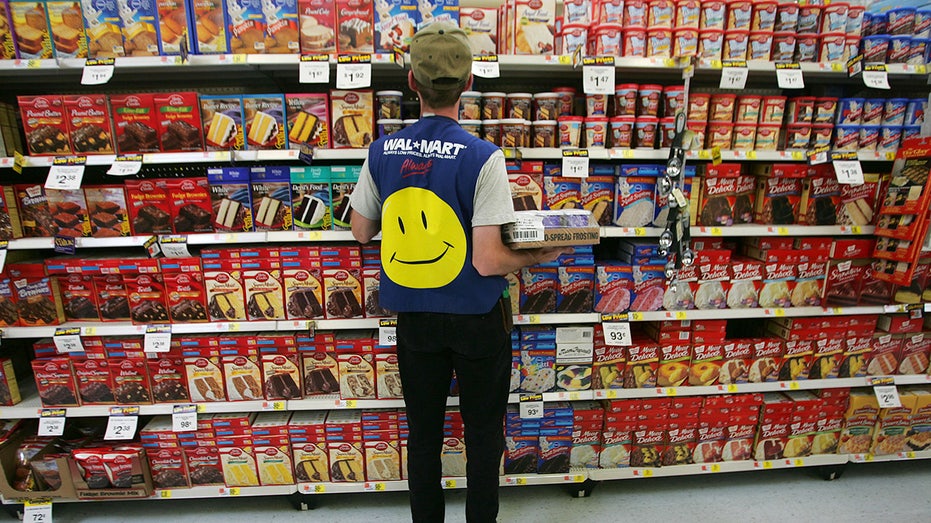US consumer spending jumped in April and inflation accelerated
Federal Reserve’s preferred gauge of consumer prices increased 4.4% in April from a year earlier
Should the Federal Reserve pause?
Former FDIC chair Sheila Bair provides insight on the Federal Reserve's rate hikes on 'The Claman Countdown.'
Consumers increased their spending sharply last month and inflation accelerated, fresh data showed Friday, as the Federal Reserve debates whether to raise interest rates in June and as negotiators race to meet a debt-ceiling deadline.
Consumer spending, the primary driver of economic growth, rose 0.8% in April, the Commerce Department said Friday, boosted by higher spending on vehicles and services such as insurance and healthcare. April’s report came after two months of weaker spending, with March and February both up 0.1%, the report said.
The Fed’s preferred gauge of consumer inflation, the personal-consumption expenditures price index, rose 0.4% in April from the prior month and 4.4% from a year earlier. When excluding volatile food and energy costs, prices rose 0.4% in April from the prior month and 4.7% from a year earlier. Economists see so-called core inflation as a better predictor of future inflation.

Jerome Powell, Chair of the Board of Governors of the Federal Reserve, attends a Central Bank Symposium at the Grand Hotel in Stockholm, Sweden on Jan. 10, 2023. The Fed's preferred gauge for inflation rose this week, putting pressure on the Fed to i (CLAUDIO BRESCIANI/TT News Agency/AFP via Getty Images / Getty Images)
Over the past six months, senior Fed officials have focused on prices for a subset of labor-intensive services by excluding food, energy, shelter and goods. Officials believe that category could reveal whether wage pressures from the solid labor market are passing through to consumer prices. That reading rose 0.4% in April from the prior month and increased 4.6% from a year earlier, according to Wall Street Journal calculations.
ANOTHER FED RATE HIKE COULD BE IN PLAY DURING JUNE MEETING
The Fed’s inflation target is 2%.
Fed tries to slow the economy
The Fed has increased interest rates at 10 consecutive meetings since March 2022 as it tries to slow investment, spending and hiring to reduce high inflation. Friday’s report offers clues on the extent to which the central bank has more work to do to lower inflation. The next Fed policy meeting is June 13-14.
U.S. economic growth cooled in the first quarter. But a solid labor market has kept unemployment low and wage growth elevated, providing fuel for consumer spending, the main driver of economic growth.

Federal Reserve Chair Jerome Powell arrives to speaks at a news conference after the Federal Open Market Committee meeting, Wednesday, Dec. 11, 2019, in Washington. The Open Market Committee has raised interest rates 10 times in row already this year ((AP Photo/Jacquelyn Martin) / AP Newsroom)
Americans increased spending at stores, restaurants and online in April for the first time in three months. U.S. economic activity rose in May to its highest pace in 13 months. But a prolonged political fight over the nation’s borrowing limit threatens to push the economy into recession or, should the government default on its debt, trigger a financial crisis.
"We are not in an economy that’s retrenching," said Gregory Daco, chief economist at the consulting firm EY-Parthenon. "Neither are we in an economy that is very strong. We’re somewhere in the middle, and the momentum appears to be tilted to the downside."
FED OFFICIALS DIVIDED OVER ADDITIONAL INTEREST RATE HIKES, MEETING MINUTES SHOW
Spending on experiences
Americans are shelling out for summer travel, concert tickets and cruises despite rising prices, part of a shift away from goods spending during the worst of the pandemic to services.
In addition to wage gains, households still have excess savings from during the pandemic, when the government pumped money into the economy in response to Covid-19’s economic disruptions.
A recent report from the San Francisco Fed estimated that around $500 billion in such excess savings remains in the overall economy. "We expect the aggregate stock of excess savings will continue to support consumer spending at least into the fourth quarter of 2023," the report said.
| Ticker | Security | Last | Change | Change % |
|---|---|---|---|---|
| BBY | BEST BUY CO. INC. | 70.41 | +2.23 | +3.27% |
| DKS | DICK'S SPORTING GOODS | 208.29 | +2.76 | +1.34% |
| KSS | KOHL'S CORP. | 18.50 | +0.78 | +4.40% |
| HD | THE HOME DEPOT INC. | 385.25 | +3.34 | +0.87% |
Some consumers pull back
Retailers say inflation-pinched consumers are pulling back, with companies such as Best Buy, Dick’s Sporting Goods and Kohl’s recently flashing mixed signals on the state of the U.S. consumer. Home Depot earlier this month said spending on home improvement has cooled sharply this year.

An employee restocks a shelf in the grocery section of a Wal-Mart Supercenter May 11, 2005 in Troy, Ohio. Inflation has led many consumers to cut back on spending. (Photo by Chris Hondros/Getty Images) (Getty Images)
Dean Downey, a founder of Downey Brewing in Dearborn, Mich., said inflation is affecting both his customers and operations.
"To come in and enjoy a beer is kind of a luxury—you don’t have to do that," he said. "I’ve had a couple of people tell me, ‘I love coming here, but with inflation I have to cut back on a few discretionary things,’ and a brewery is part of that."
CLICK HERE TO GET THE FOX BUSINESS APP
Downey’s brewery, which has six employees, has faced rising costs, such as a roughly 50% jump in the price of malted grains over the past two years.
"Costs rise, people have less spending money, it’s hard to raise prices to match my costs," he said. "I’m a little concerned."




















